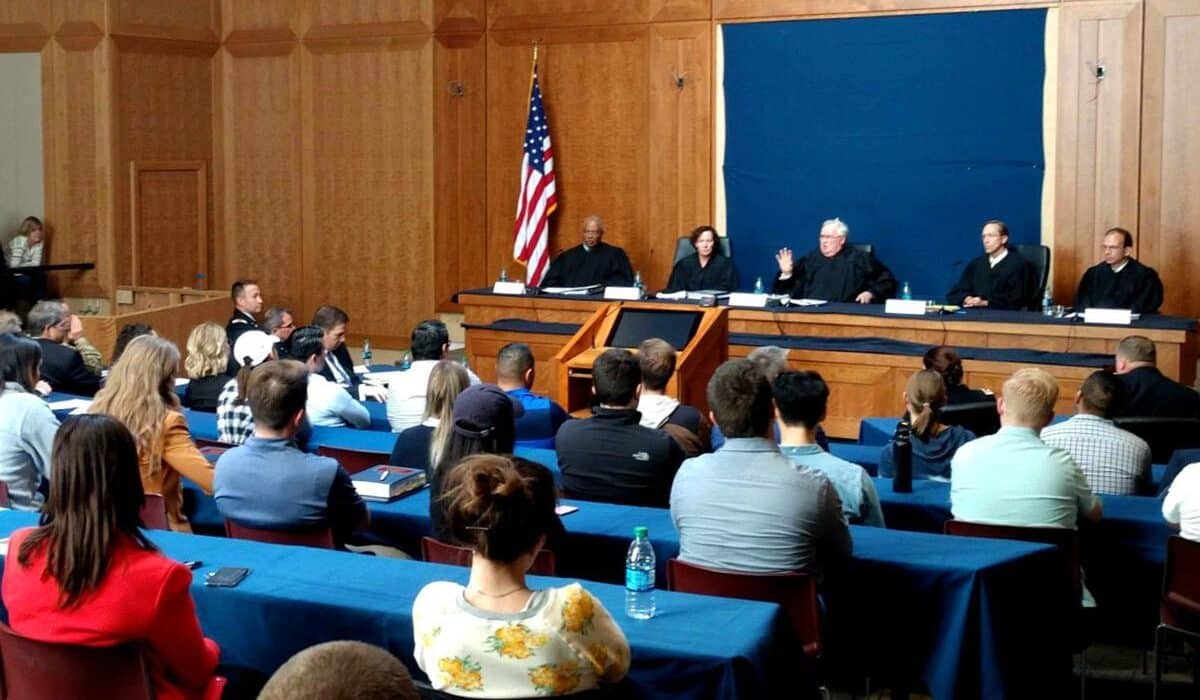Is your Bitcoin really private? A recent court ruling has major implications for cryptocurrency users. The court decided that Coinbase, a leading crypto exchange, is similar to a traditional bank when it comes to the Fourth Amendment. This means your transaction data might not be as protected as you thought. Let’s dive into the details and see what this means for you.
Coinbase: The New Bank?
In a significant decision, a three-judge panel equated Coinbase to a traditional bank. This ruling came about during the appeal of Richard Gratkowski, who was convicted of using Bitcoin to access child pornography. He argued that the FBI’s subpoenas for his Coinbase records violated his Fourth Amendment rights. The court disagreed.
Why the Comparison to Traditional Banks?
The court drew parallels to the 1939 Supreme Court case, United States v. Miller, which stated that bank records aren’t protected under the Fourth Amendment. Judge Catharin Haynes emphasized that Coinbase, as a virtual currency exchange, provides a method for transferring Bitcoin, making it akin to a financial institution.
Here’s a quick comparison:
| Feature | Traditional Bank | Coinbase |
|---|---|---|
| Currency | Physical currency (e.g., USD) | Virtual currency (Bitcoin, etc.) |
| Record Keeping | Maintains financial records | Maintains transaction records |
| Fourth Amendment Protection | No | No (according to this ruling) |
Gratkowski’s Appeal: A Deep Dive
Richard Gratkowski’s case brought this issue to the forefront. Here’s a breakdown:
- Conviction: May 2019 for receiving child pornography.
- Sentence: 70 months in prison and 10 years of probation.
- Evidence: FBI traced Bitcoin transactions to child pornography websites using Coinbase subpoenas.
The Fourth Amendment Argument
Gratkowski argued that the FBI’s subpoena violated his Fourth Amendment rights, citing the 2018 Carpenter v. United States decision, which protects cell-site location data as private information.
Why the Court Rejected the Appeal
The court differentiated between cell-site location data and Bitcoin transaction data. Here’s why:
- Bitcoin transaction data is publicly accessible via the blockchain.
- It doesn’t reveal intimate details of an individual’s life like cell-site location data.
Judge Haynes clarified that the public nature of the Bitcoin blockchain and the voluntariness of exposure weigh against finding a privacy interest.
Blockchain: Transparency vs. Privacy – Can You Have Both?
Bitcoin transactions are recorded on the blockchain, a public ledger. This transparency is a key feature, but it also undermines claims of privacy.
The Ulbricht Precedent
The court’s ruling aligns with the trial of Ross Ulbricht, founder of Silk Road, where similar arguments about blockchain privacy were rejected.
Expert Opinions: What Do Legal Scholars Say?
Legal scholar Paul Belonick’s paper, “Transparency is the New Privacy: Blockchain’s Challenge for the Fourth Amendment,” highlights the conflict between blockchain transparency and traditional privacy rights. He argues that the Fourth Amendment relies on physical-world analogies that don’t hold in blockchain’s digital space.
Key Takeaway from Belonick:
“The Fourth Amendment rests on physical-world analogies that do not hold in blockchain’s unique digital space.”
So, What Does This All Mean?
The ruling against Richard Gratkowski sets a precedent, treating cryptocurrency exchanges like Coinbase as traditional financial institutions under the law. The court emphasized the public nature of blockchain data, affirming that Bitcoin transactions lack Fourth Amendment protections.
Actionable Insights
- Understand the Risks: Be aware that your Bitcoin transactions on exchanges like Coinbase may not be private.
- Use Privacy Coins: Consider using privacy-focused cryptocurrencies like Monero or Zcash for sensitive transactions.
- Stay Informed: Keep up-to-date with legal developments regarding cryptocurrency and privacy.
This decision underscores the importance of understanding the legal implications of using blockchain technology. To learn more about the innovative startups shaping the future of the crypto industry, explore our article on latest news, where we delve into the most promising ventures and their potential to disrupt traditional industries.
Disclaimer: The information provided is not trading advice, Bitcoinworld.co.in holds no liability for any investments made based on the information provided on this page. We strongly recommend independent research and/or consultation with a qualified professional before making any investment decisions.




